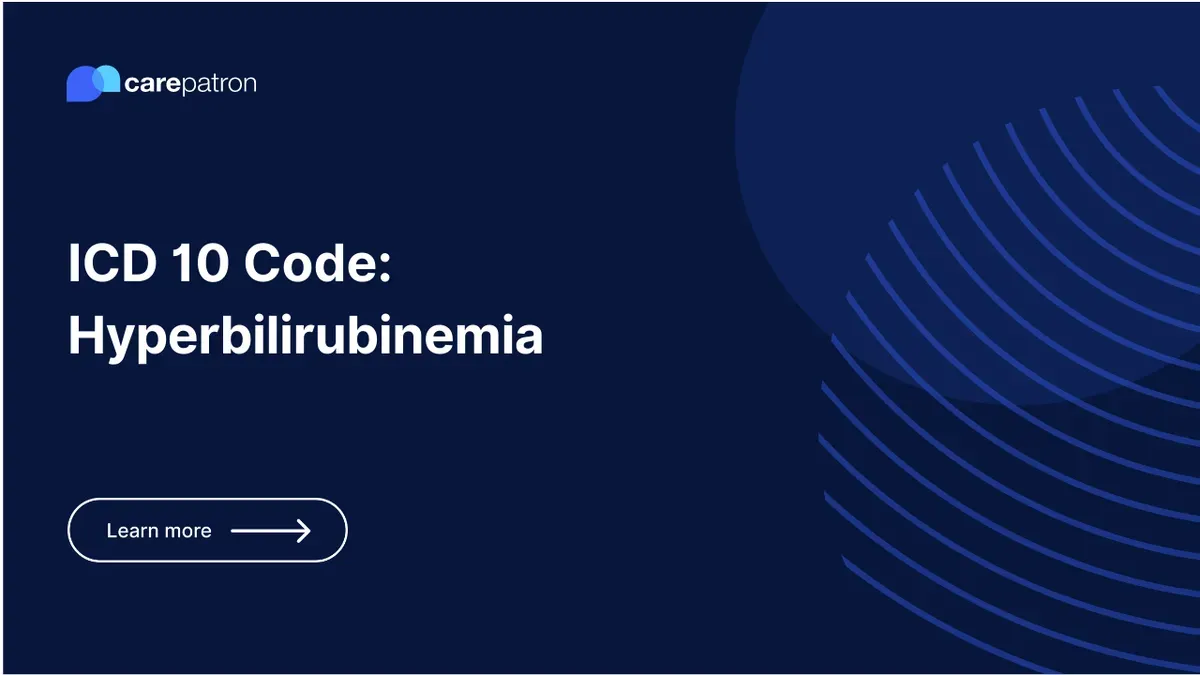The most noticeable sign of hyperbilirubinemia is jaundice, which causes a yellowish discoloration of the skin and the whites of the eyes.

Hyperbilirubinemia ICD-10-CM Codes | 2023
A complete guide to Hyperbilirubinemia's ICD-10-CM codes for 2023, including the most used codes, their billability, clinical info, synonyms, and unique FAQs.
Use Code
Commonly asked questions
Hyperbilirubinemia in adults can be caused by conditions like liver disease, hepatitis, cirrhosis, or conditions that lead to an increased breakdown of red blood cells, such as hemolytic anemia.
In newborns, mild hyperbilirubinemia often resolves on its own. More severe cases may require treatments such as phototherapy or, in very severe cases, a blood transfusion.
EHR and practice management software
Get started for free
*No credit card required
Free
$0/usd
Unlimited clients
Telehealth
1GB of storage
Client portal text
Automated billing and online payments
